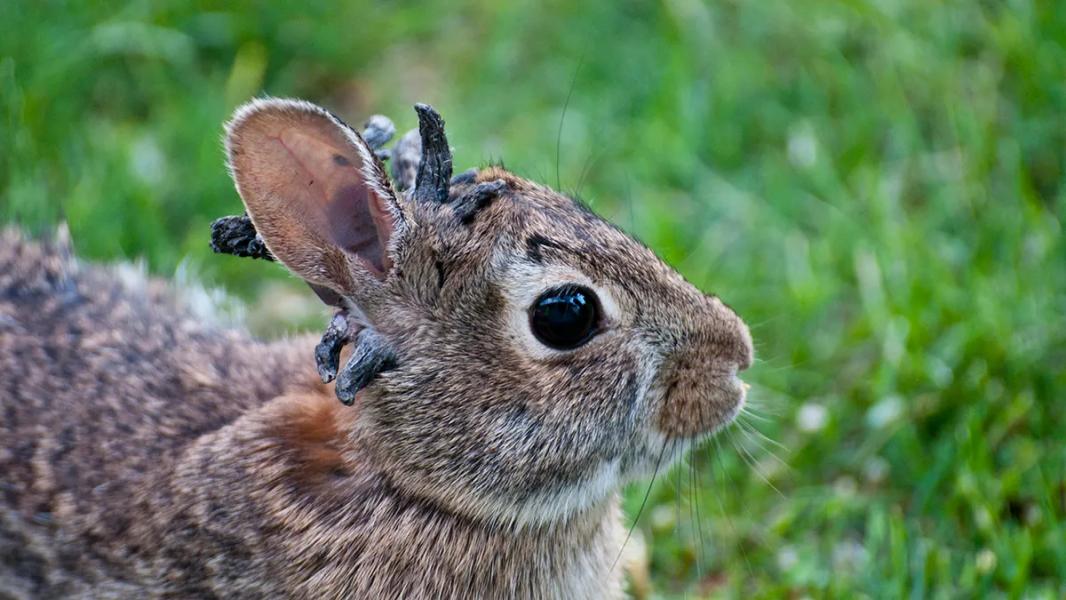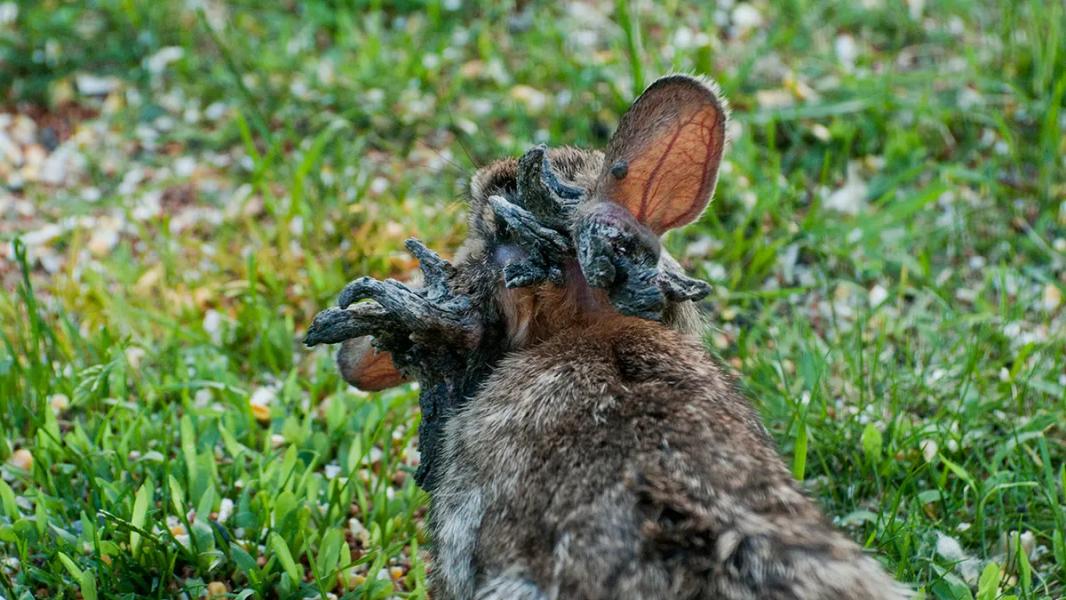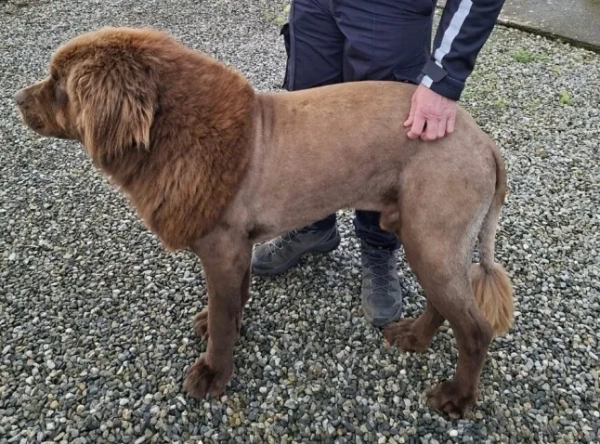
Video Could Bird Flu Be the Next Pandemic?
Fox News senior medical analyst Dr. Mark Siegel shares his thoughts on how seriously to take the spread of bird flu on “Fox Report.”
NEWYou can now listen to Fox News articles!
Wild rabbits have recently been spotted in the United States with “horny” growths on their heads caused by a viral infection, experts say.
“Rabbit papillomas are growths on the skin caused by the rabbit papilloma virus,” the Colorado Parks and Wildlife (CPW) website states, as some residents have reported strange sightings.
“It looked like he had black needles or black toothpicks coming out of his mouth,” Fort Collins, Colorado resident Susan Mansfield, who saw one of the rabbits, told 9News. “I thought he wouldn't survive the winter, but he did. He came back the second year, and he got bigger.”

A rabbit infected with a virus. (Education Images/Universal Images Group via Getty Images)
CPW says the infection is characterized by “black nodules on the skin, usually on the head,” adding: “Sometimes the growths can become elongated, taking the form of horns.”
The agency says the growths do not harm the rabbits unless they interfere with the animals' ability to eat or drink.
“Most infected rabbits will survive the viral infection and the growths will disappear,” CPW says. “For this reason, CPW does not recommend euthanizing rabbits with warts unless they interfere with the animal's ability to eat or drink.”

The Colorado Parks and Wildlife Department says the infection is characterized by “black nodules on the skin, usually on the head,” adding, “Sometimes the growths can become elongated, taking the form of horns.” (Education Images/Universal Images Group via Getty Images)
The agency claims that the virus is specific to rabbits and is not transmitted to other species of animals, but can infect domestic rabbits, “especially if they are kept outdoors and may come into contact with wild rabbits or blood-sucking insects. In domestic rabbits, the disease is more severe than in wild ones, and a veterinarian should be involved in treatment.”
CPW also recommends people avoid contact with infected rabbits, News9 reports.

The department said the virus is specific to rabbits and cannot be transmitted to other species, but can infect domestic rabbits, “especially if they are kept outdoors where they may come into contact with wild rabbits or blood-sucking insects. Domestic rabbits are more severely affected than wild rabbits and should be treated by a veterinarian.” (Iowa Department of Natural Resources)
There is no effective treatment for the virus.
Sourse: www.foxnews.com





